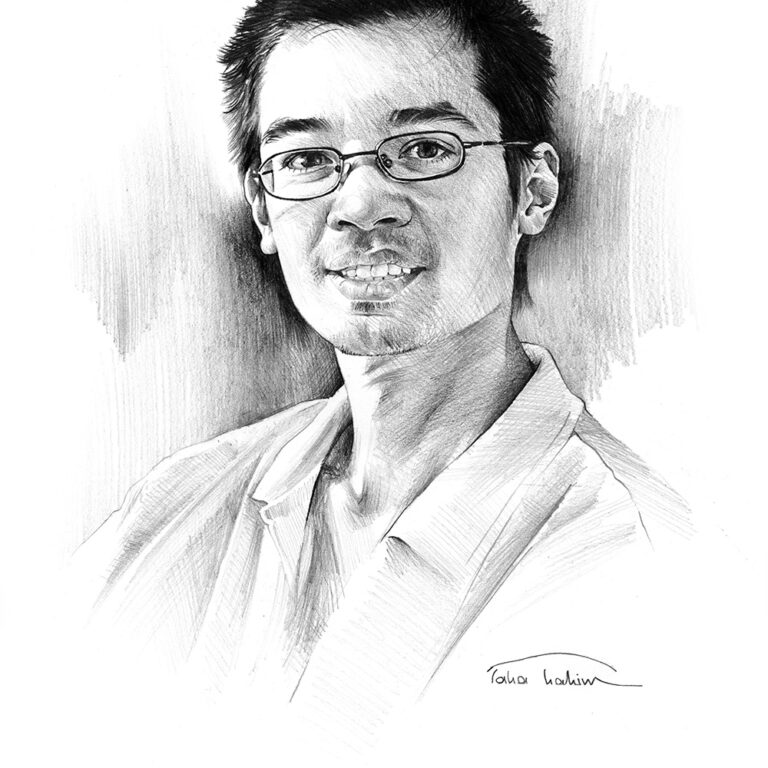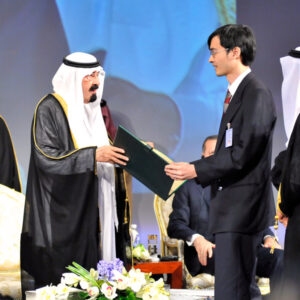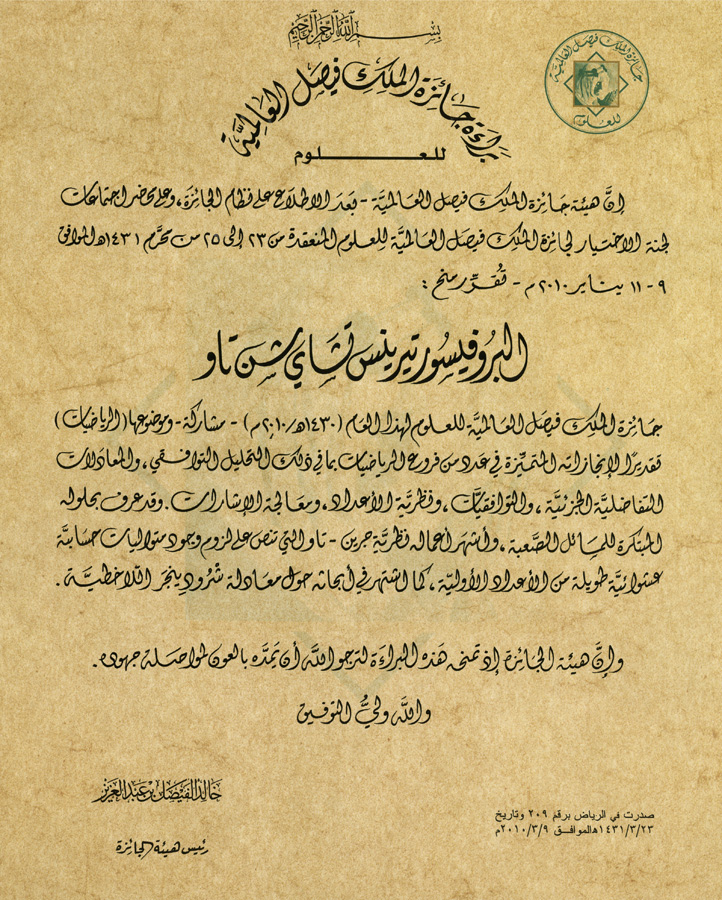

Professor Terence Chi-Shen Tao
King Faisal Prize in Science 2010 Laureate
Topic: "Mathematics "
Mathematics is a truly international activity, and also one of our oldest

Terrence Tao’s parents were first generation immigrants from Hong Kong to Australia, where he was educated until the age of 17. He then continued his education in the United States and now holds dual Australian and American nationalities.
Tao’s genius in mathematics manifested at an early age. He began teaching himself basic arithmetic at the age of 2, learning about numbers from Sesame Street. At the age of 7, he started to learn calculus in high school, and by the age of 9 he was attending college-level mathematics. At 11, he was already participating in international mathematics competitions, winning bronze, silver and gold medals in 1986, 1987 and 1988, respectively. At the age of 14, he attended the Research Science Institute and at the age of 17, he received his B.Sc. (honor) and M.S. degrees from Flinders University in Adelaide, which awarded him the University Medal. He traveled to the U.S. on a Fulbright Scholarship where he earned his Ph.D. from Princeton University at the age of 20 in 1996. He joined the University of California, Los Angeles (UCLA)’s faculty in the same year, and four years later, he became a full professor at the age of 24. He was also a former honorary fellow at the Australian National University, and a former visiting fellow at the University of New South Wales. He is currently the James and Carol Collins Chair of Mathematics at UCLA.
He is the editor of the Journal of the American Mathematical Society and Analysis and PDE, associate editor of Dynamics of Partial Differential Equations and the American Journal of Mathematics, and member of the advisory boards of the International Mathematical Research Surveys and Institute of Pure and Applied Mathematics. He also authored and co-authored over 170 publications (including six books) with an impressive tally of citations.
Professor Tao works across various branches of mathematics including harmonic analysis, nonlinear partial differential equations, algebraic geometry, combinatorics, analytic number theory, and signal processing. He is known for his highly original solutions for very difficult and important mathematical problems and for his technical brilliance in the use of the necessary mathematical machinery. His most famous contribution is the Green-Tao Theorem (jointly with Ben J. Green). Professor J. Garnett, former chair of mathematics at UCLA described Tao as follows: “Terry is like Mozart; mathematics just flows out of him… He is an incredible talent and probably the best mathematician in the world right now.”
Professor Tao’s path-breaking contributions to mathematics earned him a string of awards including Salem Prize (2000), Bộcher Prize (2003), Clay Research Award (2003), the American Mathematical Society’s Levi L. Conant Prize (2005), the Australian Mathematical Society Medal (2005), SASTRA Ramanujan Prize (2006), Ostrowski Prize (2007), MacArthur Award (2007), Alan T. Waterman Award and Medal (2008), and Lars Onsager Medal (2008). In 2006, the International Congress of Mathematics in Madrid awarded him the Field Medal. He was one of 48 scientists to have ever been awarded the Fields Medal since its inception 80 years ago. He was also the first Australian and first UCLA mathematician to receive that prestigious Medal.
Professor Tao was elected Fellow of the Royal Society in 2007, the same year in which he was named “Australian of the Year.” He became an associate of the US National Academy of Sciences in 2008 and a member of the American Academy of Arts and Sciences in 2009. He is also a Corresponding Member of the Australian Academy of Sciences.
This biography was written in the year the prize was awarded.
- He received many awards and honors including:
- Fellowship of the American Mathematical Society in 2013.
- Royal Medal of the Royal Society in 2014.
- Breakthrough Prize in Mathematics in 2015.
- Janos Bolyai International Mathematical Prize of the Hungarian Academy of Sciences in 2020.



